Fox News Flash top headlines for July 12
Fox News Flash top headlines are here. Check out what's clicking on Foxnews.com.
A 3-year-old boy has died after being left inside a hot car in a Florida school parking lot on Monday — making this the first hot car death in the state in 2022, according to a nonprofit that tracks such deaths.
The child attended Lubavitch Educational Center in Miami Gardens; the boy's father, a rabbi, works there, Fox affiliate WSVN in Miami reported.
The child was found unresponsive at the scene and died at a local hospital. Police were interviewing the father and the incident is being investigated, according to WSVN.
Fox News Digital reached out to Miami Gardens Police for comment.
PENNSYLVANIA BABY BOY DIES IN HOT CAR INCIDENT: WHAT PARENTS NEED TO KNOW NOW
"This tragedy hits close to home, and many in our school community have been affected by it," Rabbi Benzion Korf, the center’s dean, said in a short statement issued late Monday, according to the Associated Press. "No words can capture the heartbreak and sadness we feel," he added.
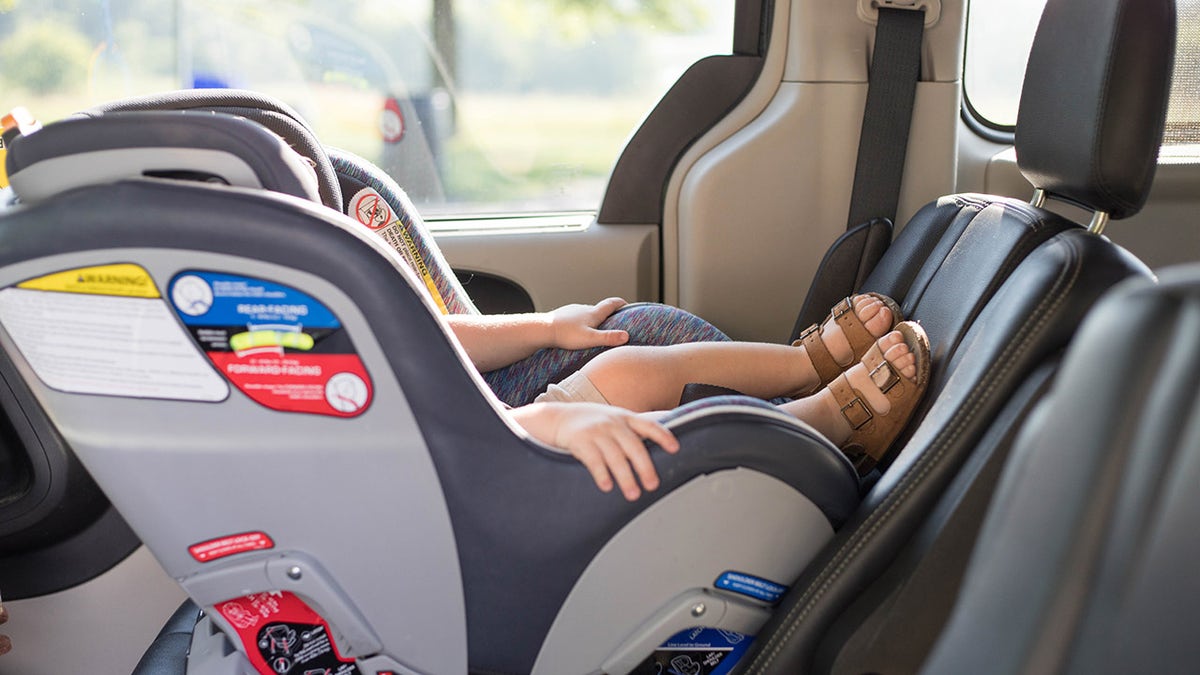
Kids and Car Safety, a national nonprofit working to prevent injuries and deaths of children in and around motor vehicles, is pushing for occupant detection features to be installed into newly manufactured vehicles as soon as possible. (Kids and Car Safety)
Fox News Digital reached out to Lubavitch Educational Center for comment.
Rabbi Korf said a therapist and grief counselor would be available for staff and students at the center, the AP reported.
"It's horrible, and yet we expect it," Amber Rollins, director of Kids and Car Safety told Fox News Digital on Tuesday about the tragedy.
"We know it's going to happen, we know there's going to be more families out there now who have precious children with them alive, happy, healthy and before the end of the summer they're not going to have them," she said. "It's just devastating because we know there are effective solutions out there readily available, and [they're] not being used."
NORTH CAROLINA 1-YEAR-OLD DIES IN HOT CAR, 10TH CHILD IN US THIS YEAR: REPORT
The temperatures in Miami Gardens reached the 90s on Monday, Google search results revealed.
This marks the 11th hot car-related death in America as of today, according to data tracked by Kids and Car Safety. The group is a national nonprofit working to prevent injuries and deaths of children in and around motor vehicles.
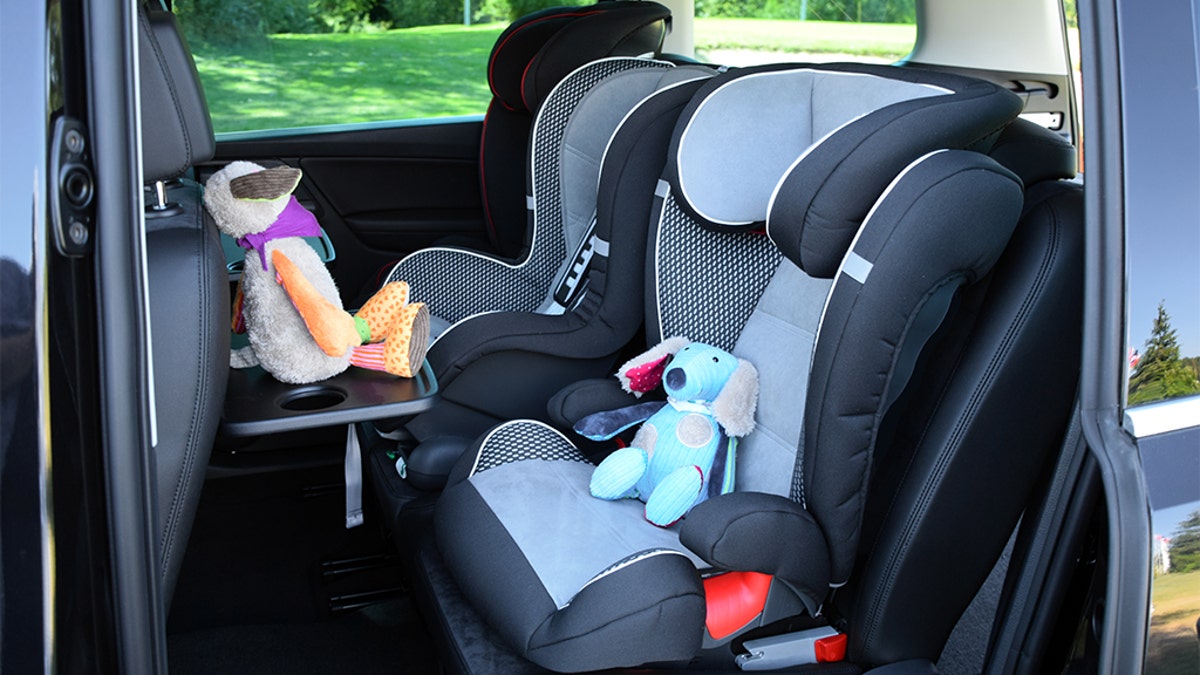
Kids and Car Safety officials offer tips on how parents and caregivers can protect their children against hot car-related incidents; one such tip is to ask a childcare provider to call right away if a child hasn’t arrived as scheduled. (iStock)
The organization reports an average of 38 hot car deaths per year — or one every 9 days.
In November 2021, Congress passed the Infrastructure Investment and Jobs Act; President Biden signed it into law. It includes a provision that addresses hot car tragedies by requiring an audio and visual reminder alert to check the back seat in new passenger vehicles.
It does not specify the requirement for the system to detect that a child is alone in a car — otherwise known as occupant detection — according to a release from Kids and Cars that was shared with Fox News Digital.
This is the first hot car death in Florida in 2022 and at least the 11th hot car death nationwide, according to Kids and Car Safety.
Rollins said Kids and Car Safety is pushing for the National Highway Traffic Safety Administration (NHTSA) to exceed what’s required for new vehicles and to add the occupant detection feature to the hot car provision.
Currently, the provision calls for "audio and visual reminder alert to check the backseat."
Occupant detection uses motion, radar, LIDAR (light detection and ranging), carbon dioxide sensing and more to detect the presence of a person inside a vehicle.
Audio and visual reminders to check the backseat do not offer the same technology.
The NHTSA has two years to test, study and decide if it’ll require new vehicles to have occupant detection; it's a system that would cost automakers roughly $50 per vehicle, Rollins said.
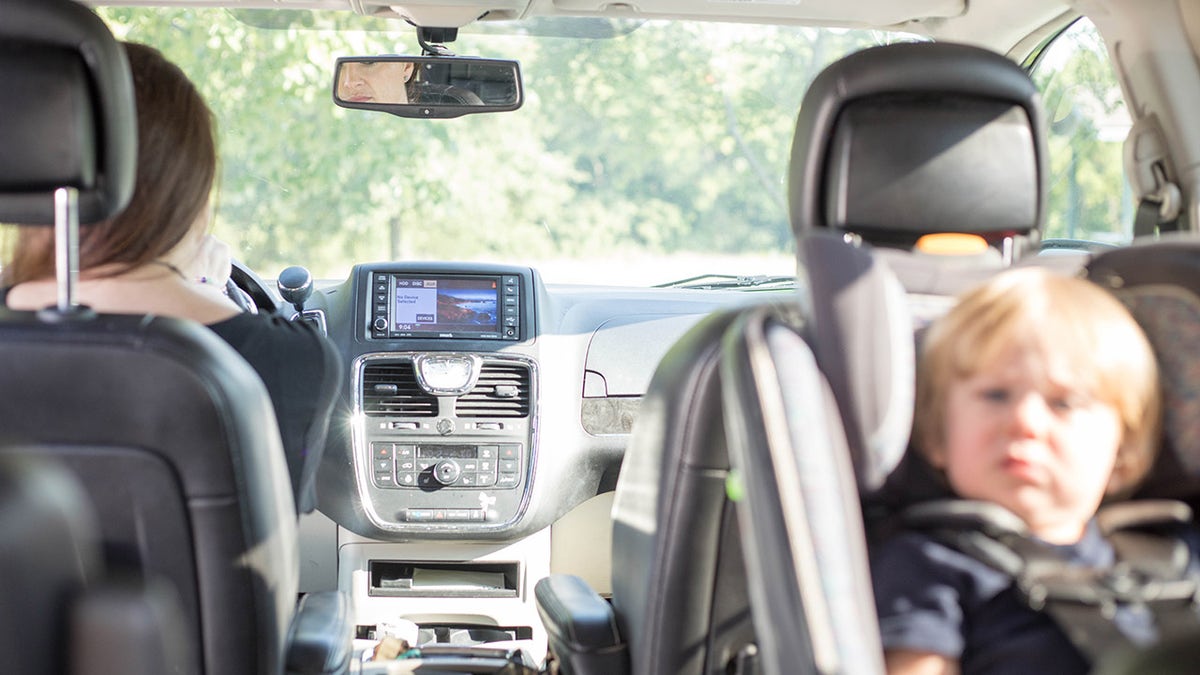
In 2021, a bill was signed to implement better safety features inside new vehicles in order to help prevent hot car-related deaths. (Kids and Car Safety)
"Part of our job over the next two years is to make sure NHTSA issues this standard as quickly as possible because if they don’t, it’s going to cost children their lives," said Rollins.
"This technology is not new — it's been around for a very long time," Rollins continued. She said it is her belief that automakers choose not to implement the occupant detection feature due to the cost.
"It’s really mind-blowing, and it’s hard to understand," she said. "It’s like they’re allowing [hot car deaths] to continue to happen."
In an emailed statement to Fox News digital, a NHTSA spokesperson wrote: "Losing a child to vehicular heatstroke is heartbreaking, and no parent should have to experience this tragic loss of life," they said, adding how hundreds of children have died due to pediatric vehicular heatstroke over the last 24 years. "That’s why NHTSA, in response to the Bipartisan Infrastructure Law, is undertaking a new rulemaking initiative (2127-AM49). This initiative directs NHTSA to issue a final rule requiring rear-seat occupant detection systems in all new passenger vehicles."
"The alert required shall include a distinct auditory and visual alert, and will be activated when the vehicle motor is deactivated by the operator," the spokesperson continued. "The agency will also conduct studies on the potential retrofitting of existing passenger motor vehicles with rear-seat occupant detection systems, as well as the potential benefits and economic burdens associated with those technologies."
NHTSA said that beginning in Fiscal Year 2024, states will be granted to use Section 402 funds "for heatstroke prevention activities under the law." These resources will hopefully help prevent hot car-related incidents and deaths.
Child hot car deaths vary by circumstance. From 1990 to 2021, 56% of children who died in a hot car-related incident were left unknowingly in the vehicle by a driver.
"It's just devastating because we know there are effective solutions out there [that are] readily available — and [they're] not being used."
Children sometimes gain access to vehicles on their own (26%) — and become trapped.
In very few cases, the circumstances are unknown (3%), while in 15% of cases children were knowingly left in the vehicle, according to data reported by Kids and Cars Safety in February 2022.
"I can tell you that for the 15% that are knowingly left, the technology would still address that, and that is because if your car alerts bystanders and law enforcement that your child is alone inside, you’re not going to leave them there [or your child will be rescued]," Rollins said.
"I think that's one aspect of the technology that no one talks about."
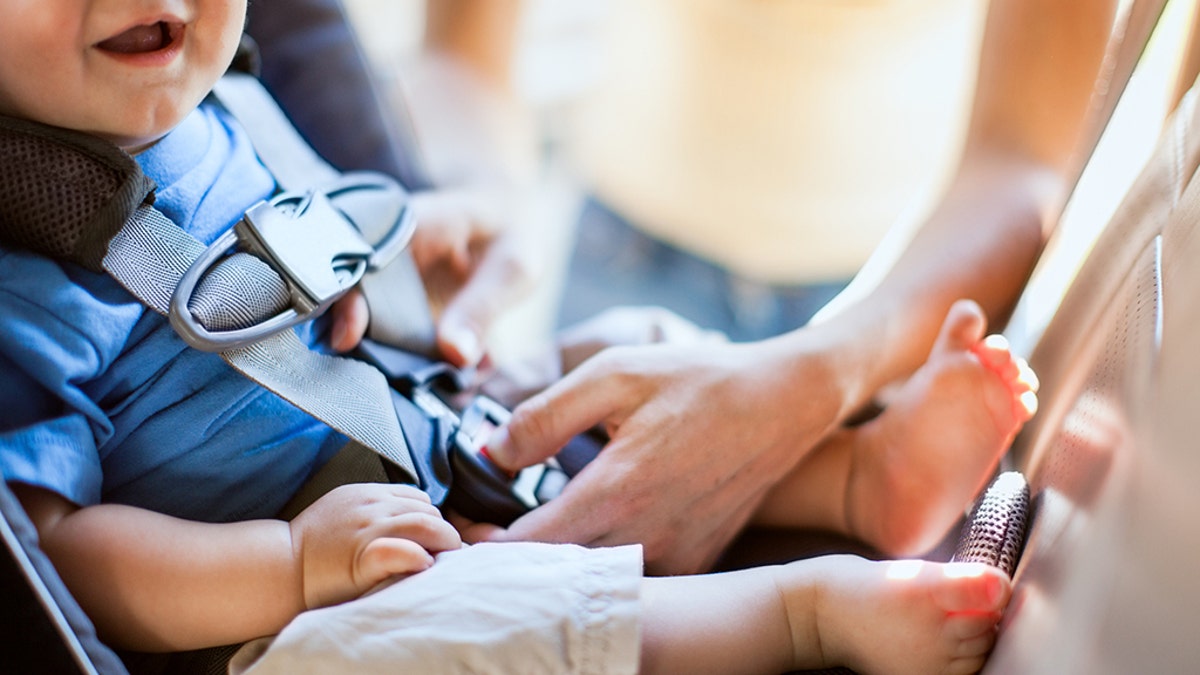
The death of a Florida child, who was left in a hot car in Miami Gardens on July 11, 2022, marks the 11th hot car-related death in America and the first death to occur in Florida, according to data tracked by Kids and Car Safety. (iStock)
"Everyone kind of writes these cases up as if [this] wasn't preventable," Rollins added.
"I think everyone can agree no one wants a child to die an excruciating death in a hot car. Where's the outrage?" she said. "We need to be proactive."
Rollins said Kids and Car Safety’s number-one priority is to stress the importance of requiring occupant detection in all new vehicles.
In 2008, a bill was signed for rear visibility cameras to be included in all newly manufactured vehicles. Kids and Cars pushed for the change in order to help prevent back-over accidents, which typically take place when a car is backing out of a driveway or parking space.
On average, vehicles back over 50 children every week. Two of those 50 children are killed and 48 are injured per week, said Rollins, who manages data-tracking for these incidents and others.
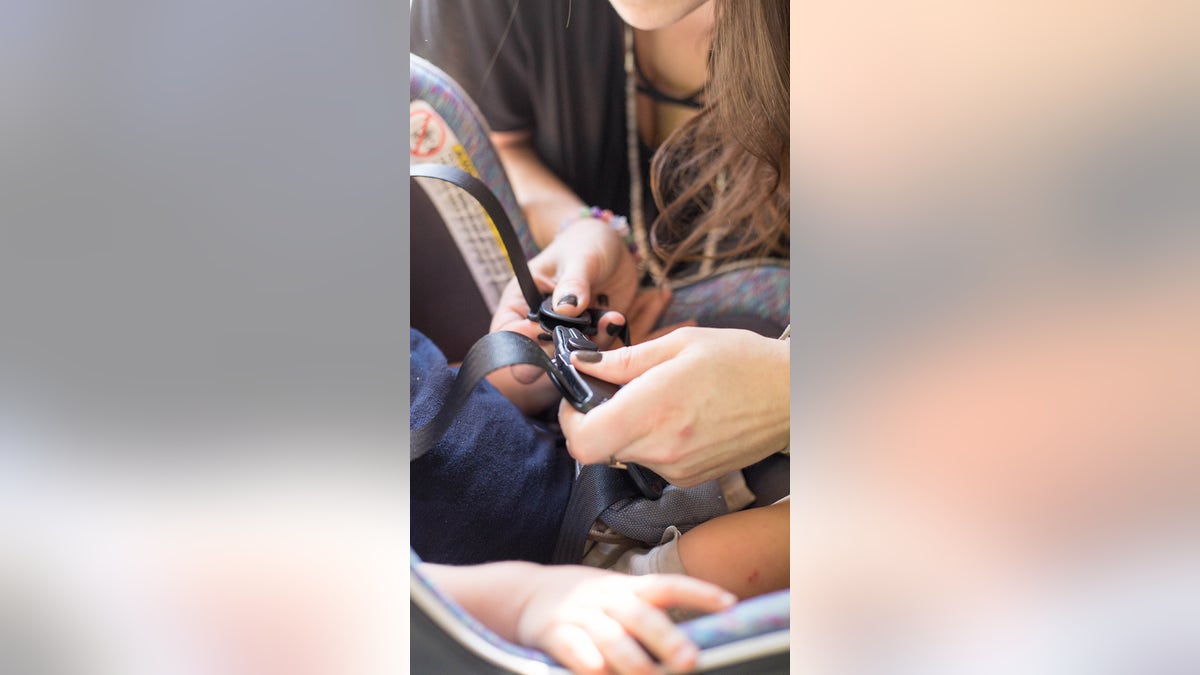
From 1990 to 2021, 56% of children who died in a hot car-related incident were left unknowingly in a vehicle, according to Kids and Cars Safety. (Kids and Car Safety)
The safety standard requiring backup cameras in all new vehicles was not fully passed until 2018, 10 years after the bill was signed.
"If you look at that over a 10-year time period, you’re looking at a pretty big number," Rollins said, referring to back-over injuries and deaths that occurred amid the decade-long delay.
"Where's the outrage? We need to be proactive."
With this said, Rollins added that occupant detection is the next feature that needs to be added into cars "as soon as possible," as she sees it.
"Public awareness cannot be higher and yet the number of deaths continue to move upward, and we've got to do better because what we are doing is clearly not working," she said.
"People have their minds completely made up that this cannot happen to them."
How parents and caregivers can protect children
The National Highway Traffic Safety Administration advises locking car doors and trunks year-round so that children can’t get inside.
"If you see a child alone in a locked car, get them out immediately and call 911," the agency states on its website.
"A child in distress due to heat should be removed from the vehicle as quickly as possible and rapidly cooled."
Here are more tips for parents on how to "create simple habits" to ensure children remain safe, courtesy of Kids and Car Safety.
Make sure your child is never left alone in a car
Place the child’s diaper bag or other item on the front passenger seat as a visual cue that the child is with you.
Make it a habit of opening the back door every time you park to ensure no one is left behind. To enforce this habit, place an item that you can’t start your day without in the back seat (employee badge, laptop, phone, handbag or the like).
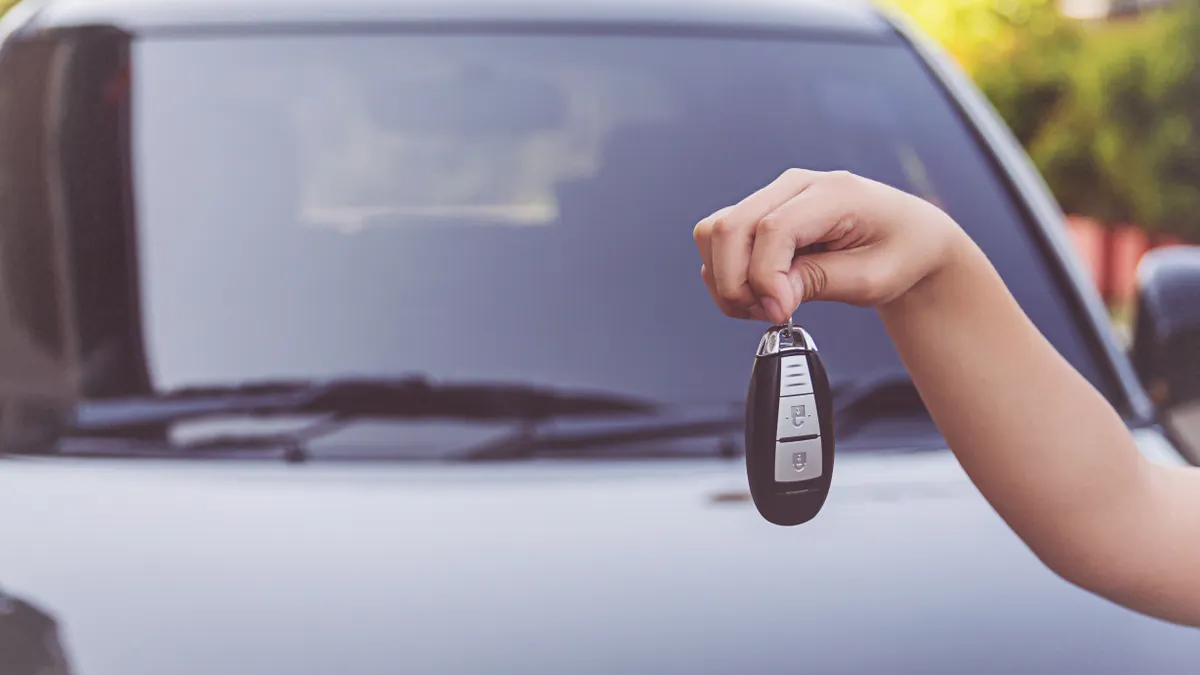
Never leave your car keys within a child's reach. Children can accidentally climb into a hot car and become trapped, according to Kids and Car Safety, (iStock)
Ask your childcare provider to call you right away if your child hasn’t arrived as scheduled.
Clearly announce and confirm who is getting each child out of the vehicle. Miscommunication can lead to thinking someone else removed the child from the car.
FOLLOW US ON FACEBOOK FOR MORE LIFESTYLE NEWS
Make sure children cannot get into a parked car
Keep vehicles locked at all times, especially in a garage or driveway. Ask your neighbors and visitors to do the same.
Never leave car keys within reach of children.
Use childproofing knob covers and door alarms to prevent children from exiting your home unnoticed.
Teach children to honk the horn or turn on hazard lights if they become stuck inside a car.
CLICK HERE TO GET THE FOX NEWS APP
If a child is missing, immediately check the inside of the car, its floorboards and the trunks of all vehicles in the area carefully, even if they’re locked.
For more resources, including information on occupant detection technology, and tips on what to do if a child becomes trapped or what to do if you see a child alone in a car, visit kidsandcars.org.
NHTSA advises parents and caregivers to read its "Where’s Baby? Look Before You Lock" public service campaign.









































